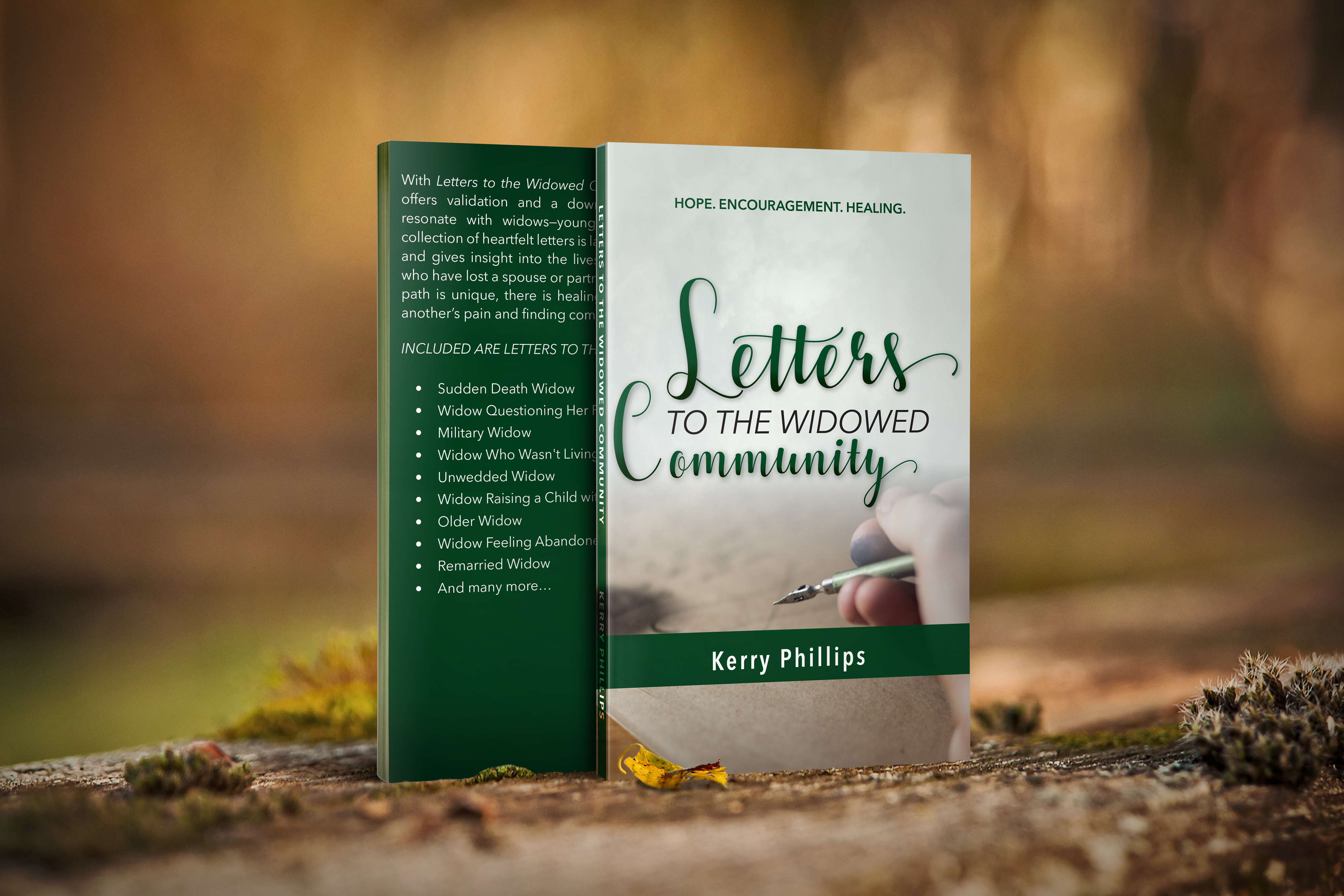The holidays are a time of togetherness and family traditions. It’s even been dubbed the “most wonderful time of the year.” But for many in the widowed community, it can be filled with grief, loneliness, and reminders of our loss.
Once solid relationships with family and friends may have frayed throughout the year because our grief was too much for them to handle and our in-laws, one of the last few connections to our spouse, might as well be called “outlaws.”
If you’re fortunate enough to have been invited – and accepted – to spend the holidays with loved ones, it’s importation to reflect on the acronym G.I.F.T.:
G is for Grief
While it’s perfectly normal to feel down, even as early as the holidays approach, you have to do a gut-check to be sure you aren’t spiraling down a grief abyss. If your anxiety/stress is through the roof as the date of the family gathering inches closer, it’s okay to check in with a mental health therapist for coping techniques.
The thought of seeing happily married siblings and relatives may also cause you to question why that wasn’t your reality and trigger a grief wave. It’s important to acknowledge your grief and feelings. If you need to escape to the bathroom or a quiet area to regroup, that’s okay. Grief doesn’t take a day off.
Don’t feel as though talking about your spouse will bring others down. Often, they may not mention him or her out of fear that it will upset you. Encourage them to share their favorite memories and good times together. Grieving doesn’t always look like tears, heartache, and sadness. Sometimes it’s belly laughs and feel-good stories, recalling fond times with a loved one.
I is for Indomitable
It’s almost the end of the year. What better time to pat yourself on the back and celebrate all you’ve accomplished. There were days you probably couldn’t see getting through the next 24 hours, let alone making it to the holidays. Every morning, you get up to face each day, unsure of what’s ahead. And, like a badass, you continue to get through all the things that life throws at you. That’s an indomitable spirit.
Regardless of what arises during the holiday season, know that you will be okay. You’ll survive the tears, the pain, and frustrations about why your person isn’t here to celebrate it. Keep in mind there is no shame in reaching out to a therapist to help you get through the final months of the year. Seeking out help when needed is yet another sign of your resiliency and determination to get through the darkest parts of your grief.
Give yourself the credit you so rightly deserve!
ADVERTISEMENT
F is for Forgiveness
The truth is, unless you’ve lost a spouse, you won’t “get it.” Even when well-intentioned loved ones offer words of comfort and sympathy, we may feel it comes across as trite and ingenuous. Remember that it’s unfair to expect them to have learned from battles they’ve never fought.
The reality is that we were once in their shoes. We might have said the widow who came before us was “strong,” not realizing it was her only choice. We probably judged the widower in the neighborhood who seemed to have starting dating before the ink dried on the death certificate. We tried to offer hope and encouragement with sayings like, “She’s looking down at you” or “Everything happens for a reason.” Unless you’ve loved and lost a spouse, you don’t realize the impact those words may have on the receiver.
Your family and friends mean well. Assume positive intent. Educate them on more acceptable ways to shower those who are widowed with love. Forgive their ignorance. We wouldn’t wish widowhood on anyone.
T is for Thankful
Death takes so much from us. Over time, it steals memories of our past and robs us of the future we mapped out with our late-spouse.
Regardless of what we’ve been through and who we’ve lost, there is always, always a reason to be thankful. By training our brain to see the good in each day, we’re able to live beyond our grief. We can spend the rest of our lives focused on our loss, or we can pay tribute to a spouse by living our best life.
Your “widow card” won’t be revoked for living post-loss. It’s okay to have an attitude of gratitude despite the crappy hand you were dealt. It’s okay to move forward, love, and laugh. It’s okay to be more than your grief. It’s okay to define yourself as more than a widow. None of this means that you didn’t love….that you don’t still love. It doesn’t mean forgetting. It doesn’t mean you’re “over it.”
The loss of a spouse will impact our lives for years and decades to come, especially if there are children involved. Yet, that life still has space to let in contentment, friendship, joy, dreams, goals, and more.
Always choose gratitude.
While holidays are steeped in tradition, it’s also a time to create new ones. You determine what goes into making the season special for you and/or your children. Incorporate his memory into your plans and remember your G.I.F.T. this season.
Kerry runs a support group for young widows and widowers venturing back into the world of dating and is a contributor to Open to Hope. She is the author of “Letters to the Widowed Community” and “The One Thing: 100 Widows Share Lessons on Love, Loss, and Life.” Her articles on widowhood and grief have been featured in HuffPost and Love What Matters. She’s also the host of the Young, Widowed & Dating podcast.



I just found this site after losing my 34 year old wife to breast cancer. I’m grateful for your work.
Thanks, Ben. We also have a closed group on Facebook should you wish to connect with others in a private community. So sorry for your loss. Big hugs.
Thank you Kerry.
I needed to read this today. Thank you.
I’m 6 months into widowhood and so many of your articles resonate with me. I lost my 38 year old husband to cancer and there are days I feel I am making process, and then days where I feel like I’m at day 1 again.
Thank you for validating these crazy emotions I’m feeling.
So glad they are helpful. Very sorry you’re part of this crappy club though.